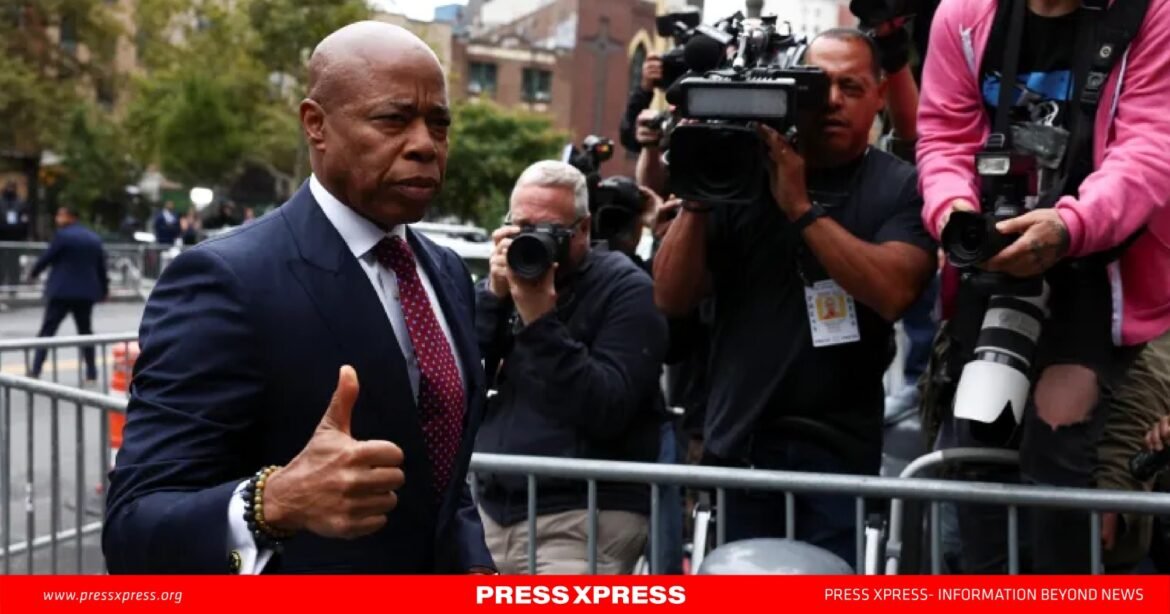New York City Mayor Eric Adams is set to face a high-stakes federal corruption trial in April 2025, a pivotal moment that comes just two months before the city’s Democratic primary. This case, in which Adams is accused of accepting luxury travel perks and misusing campaign funds, has already shaken New York politics and could even echo beyond city lines. With the mayor’s indictment generating significant media attention, his trial is emerging as a case study on the political and ethical boundaries for public officials.
At a time when anti-corruption efforts and public trust in government are central to the national discourse, Adams’ trial holds potential implications for the broader political landscape. The upcoming U.S. presidential election in 2024 could magnify interest in the case, as candidates debate topics of accountability and the role of political transparency. This trial, therefore, is more than just a local legal matter; it could resonate as a reminder of how accountability is viewed and enforced in American politics.
Allegations of Corruption
Federal prosecutors allege that Adams accepted perks, worth an estimated $123,000, from Turkish nationals, allegedly in return for fast-tracking fire inspections at a building housing the Turkish consulate in Manhattan. This allegation of “quid pro quo” is at the core of the prosecution’s case, casting Adams in a controversial light as the first sitting New York City mayor to face such charges in recent history.
The defense argues, however, that Adams’ actions do not meet the legal definition of bribery, pointing to recent Supreme Court decisions that require more explicit proof of direct exchange in corruption cases. Prosecutors are tasked with presenting evidence to bridge this legal gap, while the defense hopes to leverage these legal standards to discredit the bribery charge. As Judge Dale Ho deliberates on whether the case meets the updated legal definition of bribery, the decision could set new benchmarks for what qualifies as corruption in American politics.
Legal Strategy and Supreme Court Decisions’ Influence
Adams’ defense team is banking on a recent Supreme Court ruling that has redefined bribery requirements. By arguing that the alleged actions lack direct evidence of a transactional agreement, his lawyers aim to have the bribery charge dismissed. This strategy could reshape the legal framework for prosecuting corruption, especially for public officials, if the court sides with Adams’ defense. Judge Ho’s ruling on the matter could establish a significant precedent, impacting how bribery laws are applied in cases of public officials nationwide.
The defense further argues that accepting perks or gifts without clear transactional intent does not meet the standard of corruption, a line of reasoning that could resonate widely if Adams is acquitted.
Evidence Challenges and Public Perception
Prosecutors have prepared an extensive case, with over 1.6 terabytes of data comprising 300,000 documents and numerous digital files, much of it related to City Hall communications. However, challenges remain, including a locked cellphone belonging to Adams that investigators have been unable to access. Federal investigators have until December to submit all evidence, with the possibility of significant updates emerging as the trial approaches. The locked device has raised public curiosity, potentially affecting the trial’s momentum if crucial evidence is found—or remains elusive. Meanwhile, the heavy media coverage and public interest in Adams’ case have sparked wider debates on political ethics, potentially shaping public opinion as both local and national elections draw near.


